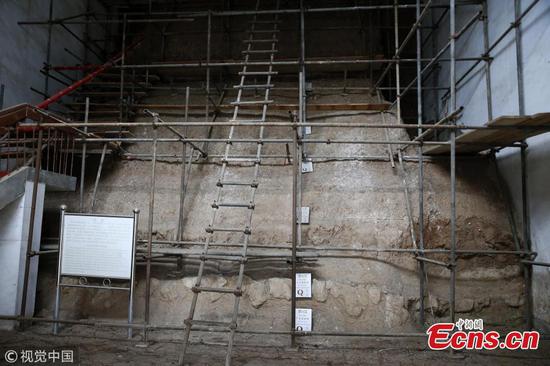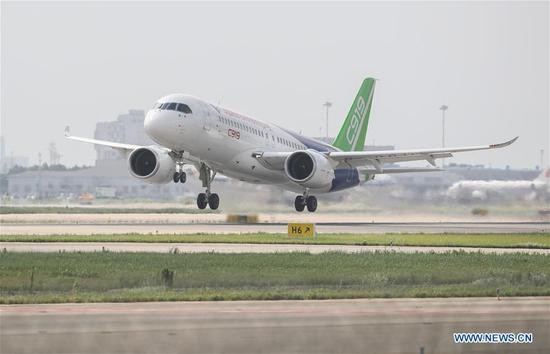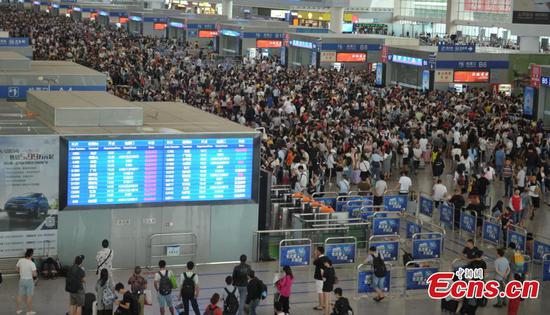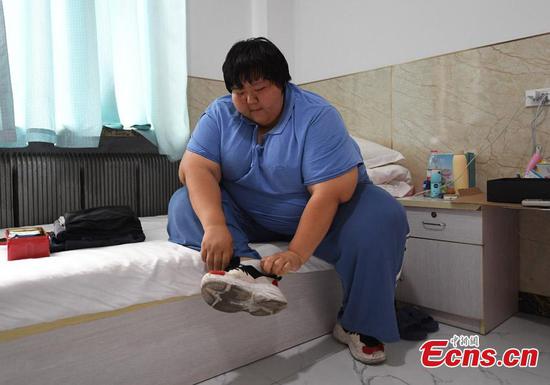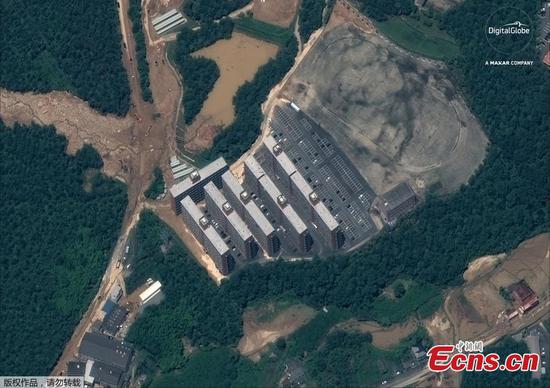Restrictions follow failure to pay wages owed to migrant workers
Fourteen companies and six individuals have been blacklisted because they failed to pay wages they owed to migrant workers, China's human resources authority announced on Thursday.
As a result, the companies will face restrictions on such things as obtaining financing and will lose tax-reduction benefits. The individuals are prohibited from air travel and from booking first-class seats on bullet trains.
"Those 14 companies and six individuals will be punished not only by local human resources departments but also by other authorities," said Qiu Xiaoping, vice-minister of the Ministry of Human Resources and Social Security.
The most severe case involves a construction company based in Chongqing municipality that didn't pay 113 migrant workers 5.96 million yuan ($891,000) in wages.
Chen Hongwan, director of fiscal and financial affairs for the National Development and Reform Commission, said the default would be penalized in various ways, including a loss of government funds, financing, credit and tax reductions.
"For example, they will be barred as suppliers in government procurement, their allowance from governments will be suspended or canceled and related departments will impose restrictive measures when they apply for stock issuance, bank loans or other things," he said.
In September, the ministry introduced the blacklist regulation to punish companies or individuals failing to pay, or seriously delaying, migrant workers' salaries. The rule took effect this year.
In addition, 30 ministries and organizations, including the NDRC, People's Bank of China and China Railway Corp, agreed to jointly punish those on the blacklist.
Under an agreement they reached in November, individuals on the list may not travel by air or purchase upgraded seats on bullet trains.
Wang Gangkui, 28, a migrant worker at a construction site in Qujing, Yunnan province, said the blacklist regulation is a good weapon against delays in wage payment. He hasn't received any salary in three months - a total of at least 10,000 yuan.
"Actually, the reason many employers illegally delay paying workers' wages is they spend money on their daily lives. It's not a lack of money," he said. "The blacklist, which limits their daily consumption, can cure that." Companies and individuals in serious default on wages - those responsible for delaying one worker's wage of 5,000 to 20,000 yuan for more than three months, or more than 10 workers' wages of 30,000 to 100,000 yuan - will face the toughest restrictions, said Wang Cheng, a labor supervision official in the ministry.
"The amount will be decided differently based on local circumstances," he said. "Those responsible for defaults that trigger mass disturbances and extreme events will also be put on the blacklist."
If all delayed wages are paid, and if the mistake is not repeated within a year, the restrictions can be removed, Wang said earlier.
Defaults in wage payments mainly happen in labor-intensive industries - especially the construction sector - where it's hard to judge a construction workers' workload accurately.
Wang, the migrant construction worker, said there's no clear relationship between workload and salary.
"We workers have no idea about how much we can earn every month," he said.
The Ministry of Housing and Urban-Rural Development is planning to set up a real-name system for construction workers, aiming to help determine exact workloads and responsibilities, said Wei Ming, a construction industry supervision official at the ministry.










